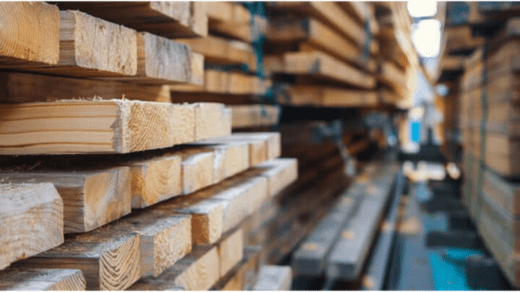Elevate Your Construction Projects: The Benefits of Advanced Materials and Techniques

In the rapidly evolving construction industry, staying ahead of the competition requires embracing advanced materials and techniques. Innovations in construction not only enhance efficiency and safety but also contribute to sustainable practices. This article explores the benefits of these advancements, focusing on essential building supplies, the role of steel distributors, and other crucial components that elevate construction projects.
The Importance of Advanced Materials
Advanced materials are transforming the construction landscape, providing solutions that enhance durability, performance, and sustainability. Materials such as high-strength concrete, engineered wood, and composite materials offer superior strength-to-weight ratios, allowing for more innovative designs and structures.
Enhanced Durability and Longevity
Utilizing advanced materials significantly improves the longevity of construction projects. For example, high-performance concrete can resist weathering and chemical attacks, reducing maintenance costs over time. This durability is particularly beneficial in harsh environments, such as coastal areas or regions with extreme temperatures.
Sustainability Benefits
With increasing emphasis on sustainable construction, advanced materials play a crucial role in reducing environmental impact. Many of these materials are sourced responsibly and designed to minimize waste. Incorporating recycled materials, such as reclaimed wood or recycled steel, contributes to a lower carbon footprint and promotes resource efficiency.
Building Supplies: The Backbone of Construction
Building supplies are essential components that determine the quality and success of any construction project. Advanced building supplies, including pre-fabricated components, modular systems, and energy-efficient products, streamline the construction process and enhance overall project outcomes.
Pre-Fabricated Components
Pre-fabrication involves manufacturing building components off-site, allowing for greater precision and quality control. This approach not only speeds up construction timelines but also reduces on-site waste and labor costs. Components such as wall panels, roof trusses, and modular units can be designed to meet specific project needs, promoting flexibility and innovation in design.
Energy-Efficient Products
Incorporating energy-efficient building supplies, such as high-performance insulation and energy-efficient windows, not only meets regulatory requirements but also enhances the building’s overall performance. These products contribute to lower energy consumption, resulting in long-term savings for building owners and tenants.
The Role of Steel Distributors
Steel is a fundamental material in construction, known for its strength and versatility. The role of steel distributor is pivotal in ensuring that construction projects have access to high-quality steel products tailored to specific project needs.
Sourcing Quality Steel
Reputable steel distributors provide a range of steel products, including beams, plates, and rebar, crucial for structural integrity. They offer valuable expertise in selecting the right type of steel for various applications, ensuring compliance with building codes and standards. Access to a diverse inventory enables construction professionals to choose materials that align with their project specifications.
Custom Solutions
Many steel distributors offer custom solutions, such as cutting, bending, and coating services, to meet the unique requirements of construction projects. This customization allows for greater design flexibility and can lead to more efficient use of materials, minimizing waste and costs.
Integrating Advanced Techniques
Alongside advanced materials and high-quality building supplies, employing modern construction techniques can significantly enhance project outcomes. Techniques such as Building Information Modeling (BIM) and Lean construction principles are gaining traction in the industry.
Building Information Modeling (BIM)
BIM is a digital representation of the physical and functional characteristics of a building. This advanced technique allows for improved collaboration among project stakeholders, facilitating better decision-making throughout the construction process. By visualizing the project in a 3D model, teams can identify potential issues early, reducing delays and costly rework.
Lean Construction Principles
Lean construction focuses on maximizing value while minimizing waste. By implementing lean principles, construction teams can optimize workflows, reduce redundancies, and enhance overall efficiency. This approach not only leads to cost savings but also improves project timelines, ensuring timely delivery.
Conclusion
Embracing advanced materials and techniques is essential for elevating construction projects in today’s competitive landscape. By investing in high-quality building supplies and partnering with reputable steel distributors, construction professionals can enhance the durability, sustainability, and efficiency of their projects. Integrating innovative techniques like BIM and lean construction further supports these goals, paving the way for a more efficient and effective construction industry. Adopting these advancements not only meets the demands of modern construction but also positions companies for future success.





